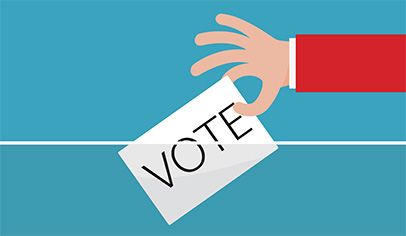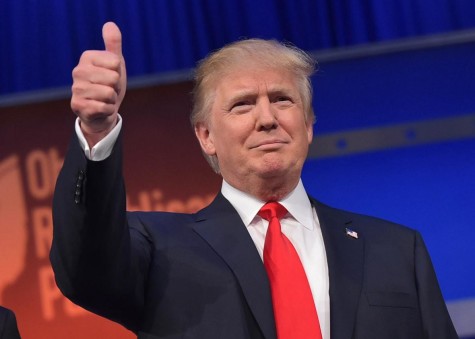Election 2016: The Stakes For Education

October 21, 2016
Throughout the 2016 presidential race, issues regarding private email servers and unreleased tax returns have been getting a great deal of attention. However, one issue undoubtedly on the minds of many within the PCS community is the cost of higher education. As parents prepare to send their students off to college, tuition and the cost of living are points of increasing concern. In fact, PCS college counselor Dean Partlow estimates that for about half of PCS students, cost is a major factor in the decision about where to attend college. Where do the two candidates stand on the issue of college tuition?
Hillary Clinton has introduced a targeted plan to help lower-income students attend college as well as to cut down on student loan debt. She has proposed that families who earn less than $125,000 a year should have access to in-state public colleges and universities without having to pay for tuition. Mr. Partlow—while careful not to express support for one candidate over the other—emphasizes that free tuition for lower-income families would help a lot of PCS students and families afford college. Additionally, Clinton has proposed free tuition for all students at community colleges throughout the United States. Clinton’s website summarizes her view on college costs, stating “Every student should have the option to graduate from a public college or university in their state without taking on any student debt.”
Donald Trump has revealed little about how he would help make college more affordable and ease the burden of student debt. Trump has acknowledged the issue of college cost by stating on his website that he would “[w]ork with Congress on reforms to ensure universities are making a good faith effort to reduce the cost of college and student debt in exchange for the federal tax breaks and tax dollars.” However, Alan Rappeport of the New York Times notes that Sam Clovis, a policy advisor for Trump, has suggested that student loans should be handled by private banks–not the government.
Mr. Partlow says that it is very common for PCS students to take out federal loans through the government rather than pursuing loans from private banks. He observed: “I’m not that confident that private loans would be the way to go for a PCS family.” Federal loans have the advantages of lower, fixed-interest rates. In contrast, loans from private banks often have varying interest rates. Conversely, Clinton, who favors federal loans, says she “will significantly cut interest rates so the government never profits from college student loans.” Federal loan options with decreased interest rates could be extremely beneficial for PCS families.
Mr. Partlow recently hosted a financial aid night at PCS where a financial planner visited the school to talk about strategies to help afford college. Regardless of the outcome of the election, PCS will continue to do all it can to help students and their families.



